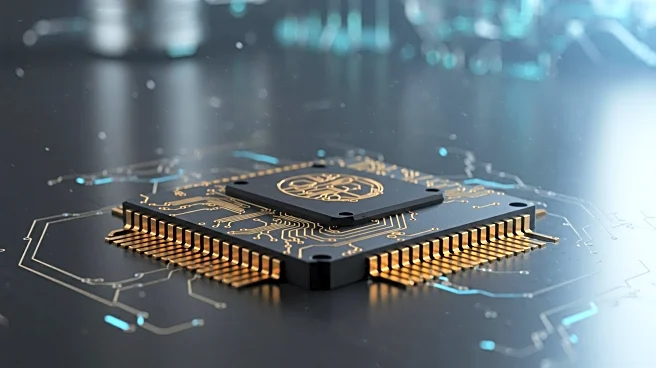What is the story about?
What's Happening?
President Trump has reversed a previous ban on the sale of Nvidia's H20 chips to China, allowing sales in exchange for a 15% revenue share to the U.S. government. This decision marks a shift from earlier restrictions aimed at limiting China's access to advanced AI technology. Despite the H20 chip being considered obsolete, its sale is significant in the context of ongoing U.S.-China trade tensions. The move has sparked debate, with critics expressing concerns over potential compromises to U.S. national security and economic interests in AI development.
Why It's Important?
The reversal of the ban on Nvidia's chip sales to China highlights the complexities of U.S.-China trade relations and the strategic considerations involved in technology exports. It reflects the balancing act between economic interests and national security concerns. The decision could impact the U.S. tech industry's competitive edge and influence future trade negotiations. Critics argue that it may weaken U.S. efforts to maintain technological superiority, while supporters might view it as a pragmatic approach to economic engagement.
What's Next?
The decision may lead to further scrutiny and debate among policymakers, industry leaders, and national security experts. It could prompt discussions on the broader implications of technology exports and the need for strategic frameworks to address trade and security challenges. Stakeholders may seek to influence future policy decisions, potentially affecting U.S.-China relations and the global tech landscape.
Beyond the Headlines
The decision raises ethical and strategic questions about the role of technology in international relations. It underscores the need for careful consideration of the long-term impacts of technology sales on national security and economic competitiveness.














